Just as Fantastical does some excellent things over and above the default Calendars application, Flexibits Cardhop delights with some new tricks beyond what Contacts can do.
Contacts hasn't changed dramatically in all the years it has shipped as a part of OS X and Mac OS. There've been minor changes like the name change from Address Book to Contacts, the addition of supporting Google Accounts in OS X, and its early days as a receiver of data from iSync, which worked with mobile phones in the days before iPhone.
One thing Contacts has never gained is a sense of fun and speed. Normally, I don't interact with Contacts unless other paths to use its data have failed me, whether that's a Spotlight search on a name, or starting a new email and seeing if the contact I'm looking for will populate the To: field.
I might have an extreme use case, though. I currently have 1604 Contacts cards. That's down from about 32,000 a few years ago. I regularly had to decline to share my address book with applications, because it would crash them in the process.
I've whittled it down from contacts I've lost touch with, and duplicates that seem to clone themselves with alarming regularity. Worse are the contacts that somehow get created out of multiple email addresses all belonging to someone other than any of the email addresses in the contact card.
No one said managing an address book was easy, especially when you introduce the local On My Mac copy, the iCloud copy, and other accounts like Google.
Cardhop is about making contacts useful and possibly delightful. Flexibits may not have Jamie Zawinski's guidance for software developers working on calendars and contacts in mind, but it's close.
Cardhop, like Flexibits, runs in the dock and in the menu bar of your Mac running El Capitan, Sierra, or High Sierra. It's possible to hide the dock icon or menu bar icon as you like, but it's an either/or situation: one of the icons will be visible.
Clicking on the icon in either location will bring up the main window for the application. The top of the menu and default cursor focus is in the search bar.
Just like Fantastical, the search is very flexible. You can enter any part of a name, email or other piece of information, and Cardhop will merge the details and search across all your accounts, local to your Mac, iCloud, Google, and so on.
Adding a contact is easy. Start by typing the name and hit return to create it. You can choose which account the contact belongs to, and edit the rest of the details just by moving the cursor over the field in the contact record. Right-click or control-click to add a contact to a group, or move a contact between groups. So far, this is all normal for a contacts application, and a mild improvement over the Contacts application that macOS has had for ages.
Here's where the magic happens: You can take action on a contact directly from the search field. By typing "dial Wendy", "call Wendy", or "phone Wendy", the application will start a call with Wendy. It can do this either by using continuity to place the call from the Mac, or if you've set up Bluetooth with your phone it can place the call.
You can copy a contact's information by typing "copy Wendy" and it will copy the contact's card to the clipboard. You can specifically choose what to copy by typing "copy Wendy work phone". You can compose emails by typing "email Wendy" or "mail Wendy" and specify which email address. It also understands "FaceTime", "ft", "facetimeaudio", "fta", "message", "text", "Skype", "tweet", "Website", "map" as commands to handle the contact.
Map directions to their address, open their Web site, or contact them any number of ways, and we're already using an application that's way more powerful than plain old Contacts.
One feature that I like is "large" or "show" followed by the contact's name. This shows the information in a large banner across the middle of the screen, making it easy to see from across the room. And, when viewing a contact whose birthday is approaching, it displays confetti animated over the contact card, similar to the effects you see in Messages on iOS.
And if that were all it did, it would be an incredibly useful contacts application. One of the things I do is take notes every time I place a call for work. Currently, I've been storing these notes in Apple's Notes app, and creating a new note for each call.
This isn't great, because my notes aren't associated with a specific contact, and if I edit them at all, it changes the date stamp for the note, rather than keeping them in chronological order. Some of this is self-inflicted — that's what I get for trying to use Notes as a customer relationship management (CRM) app.
Cardhop makes it easy to add notes to a contact record, and these notes sync with Apple's Contacts app, and over the sync services of the account. If I add notes to a person's record, they sync back to Google or iCloud and appear in that contact record everywhere.
This isn't groupware, per se, in that it doesn't share this access with any other person in a delegate relationship. But, for a single-user database of notes from calls, Cardhop does the job very well.
Preferences allows you to adjust the global keyboard shortcut that prompts the app to pop up from any other application. This is convenient when you take a call and want to add notes, or quickly start an email with a contact.
You can also customize the actions icons in the contact record. For Apple's Contacts app, they're frozen as Text, Phone, FaceTime Video call, Email. For Cardhop, you can change them to any of a long list, including what type of call - phone only, FaceTime, Skype, and more.
Contacts have never been a subject that's been given a lot of attention throughout many years of Apple's software updates — and this may be intentional to allow third-party tools to thrive. Cardhop's smart parsing and actions give contacts the features that have been missing, and so richly deserve, and it delights in a way that Contacts doesn't.
Cardhop sells for $14.99 from Flexibits.com or the Mac App Store.
 Victor Marks
Victor Marks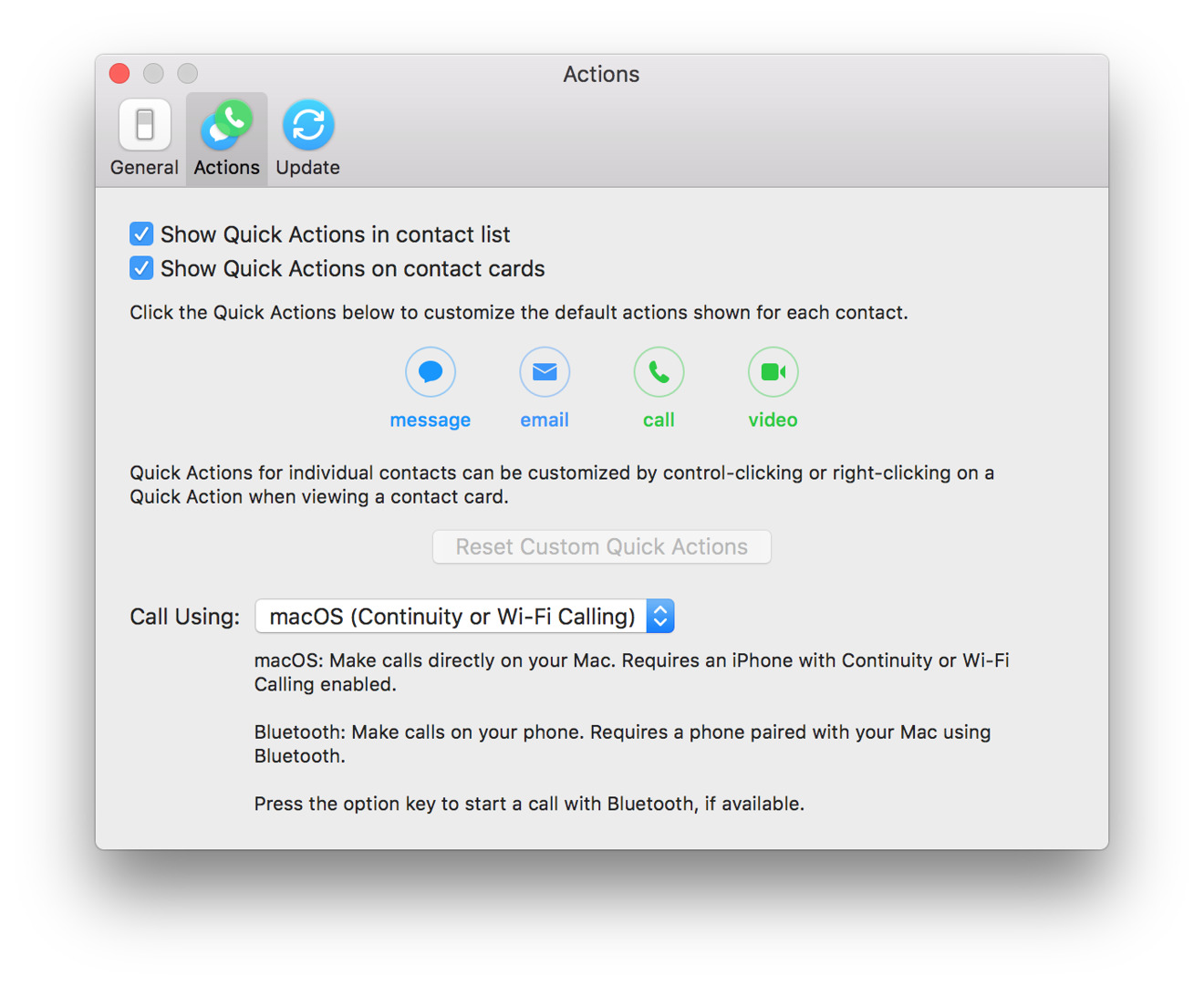
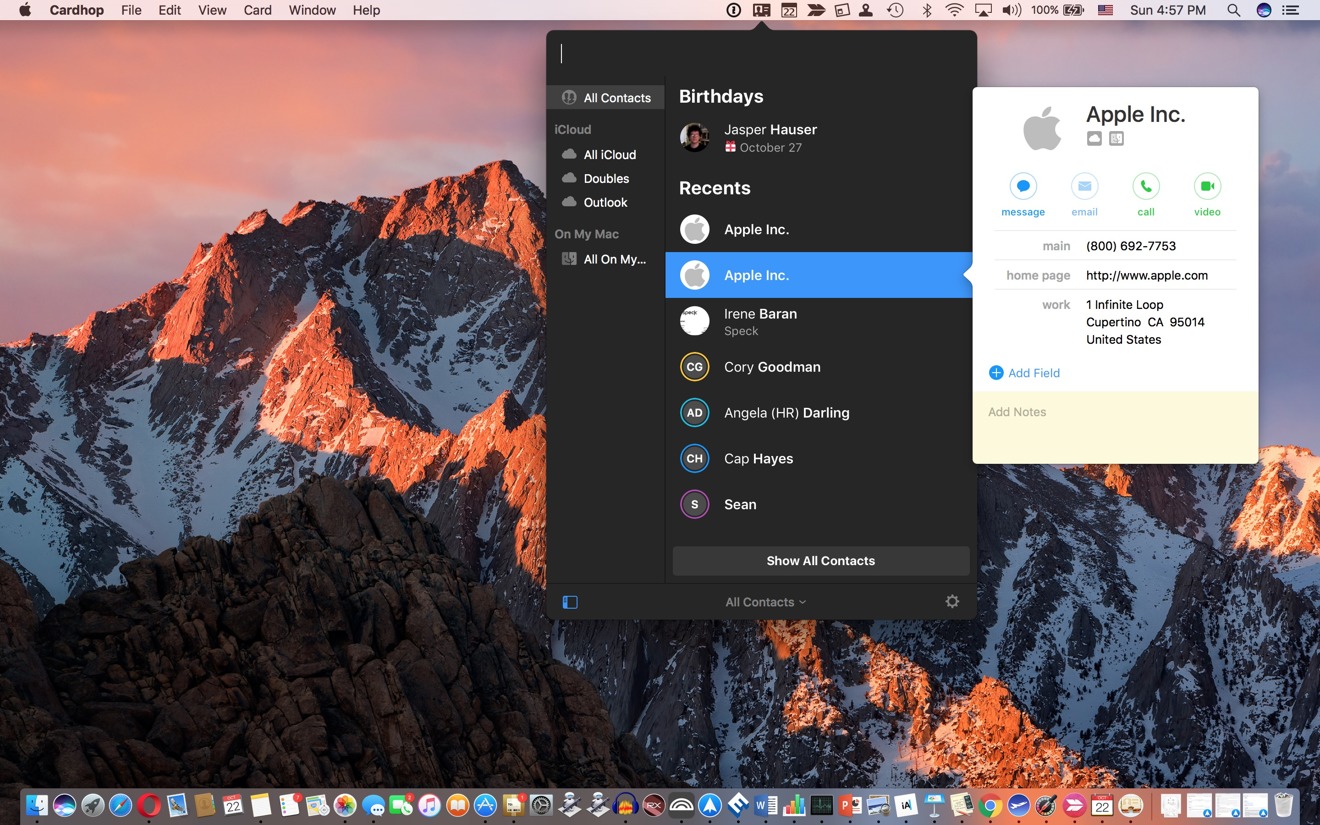
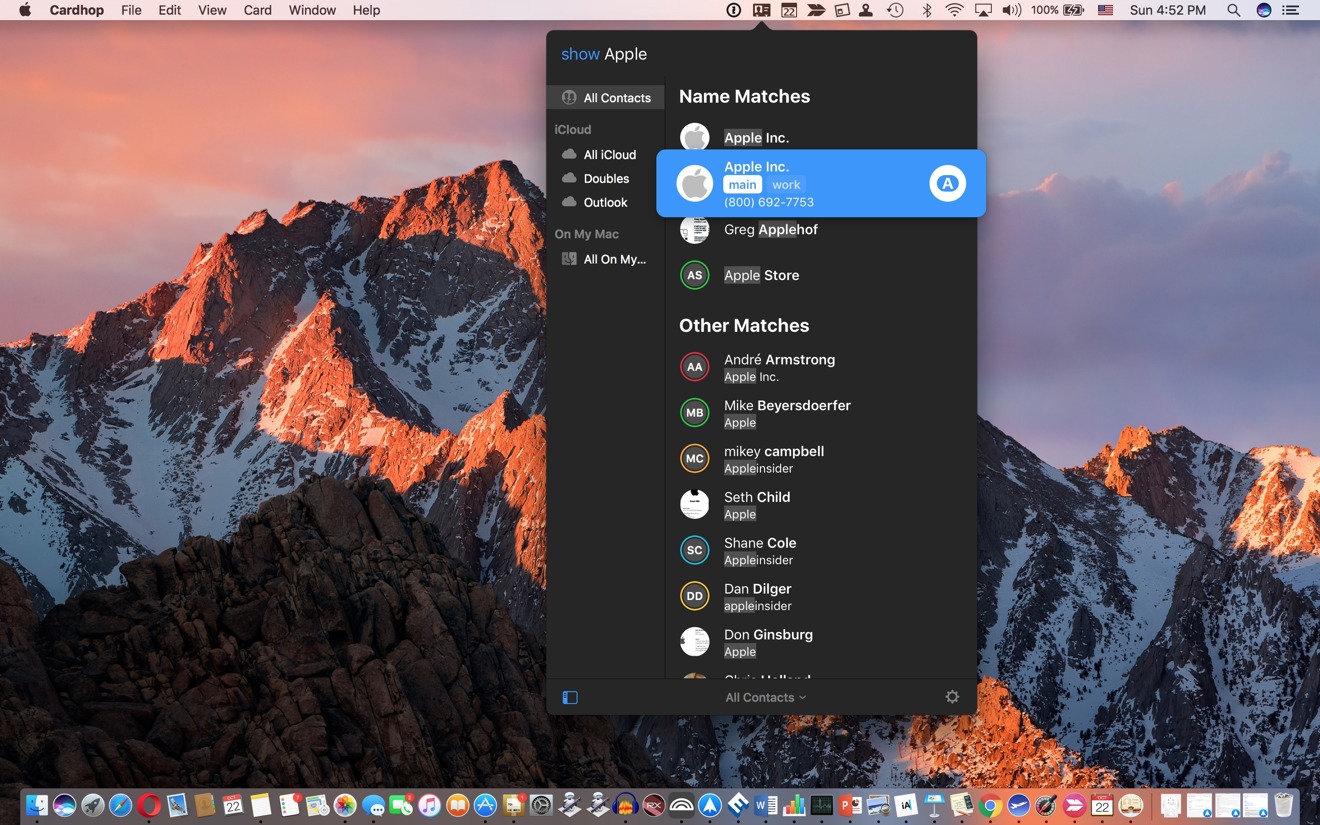

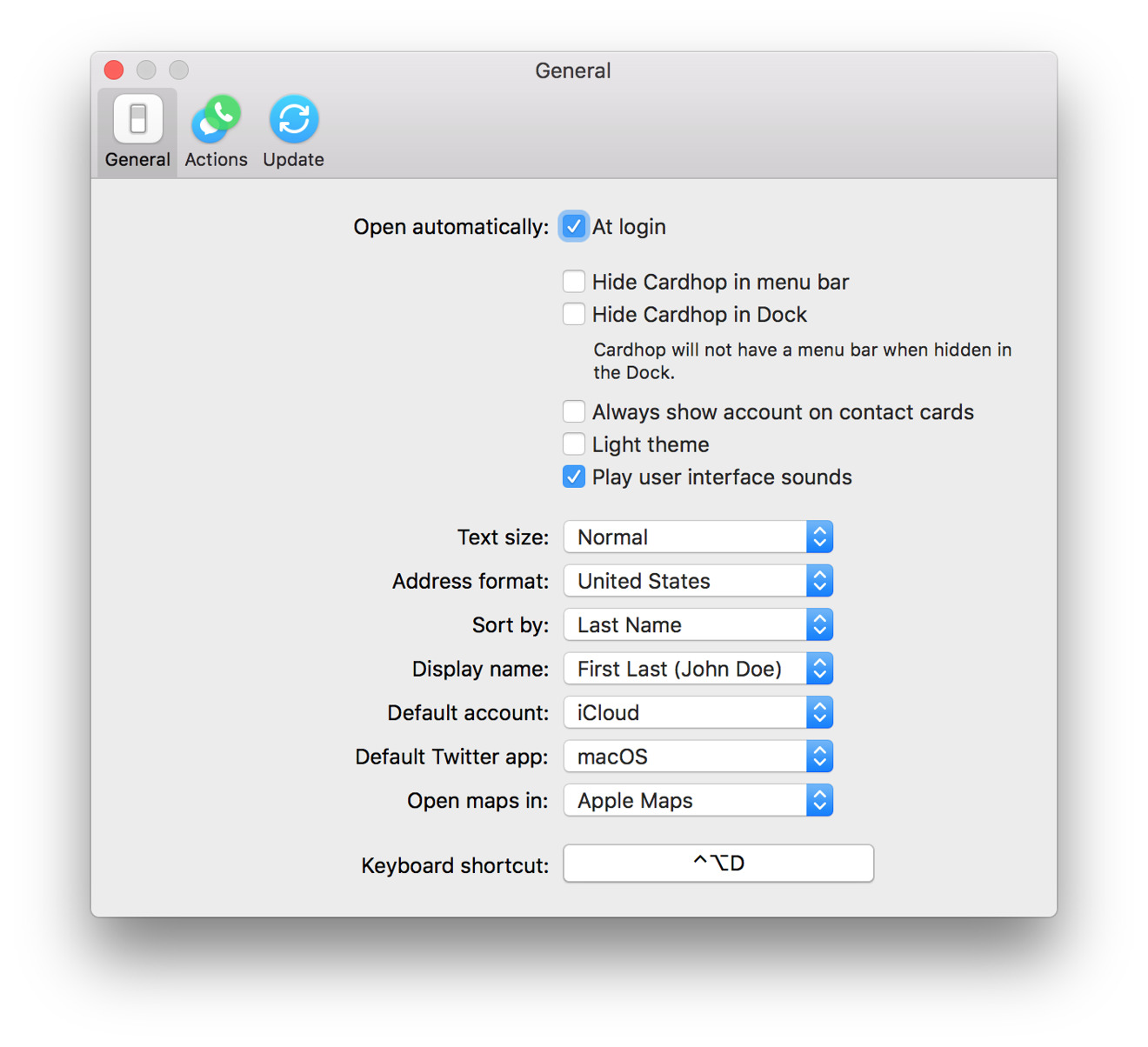
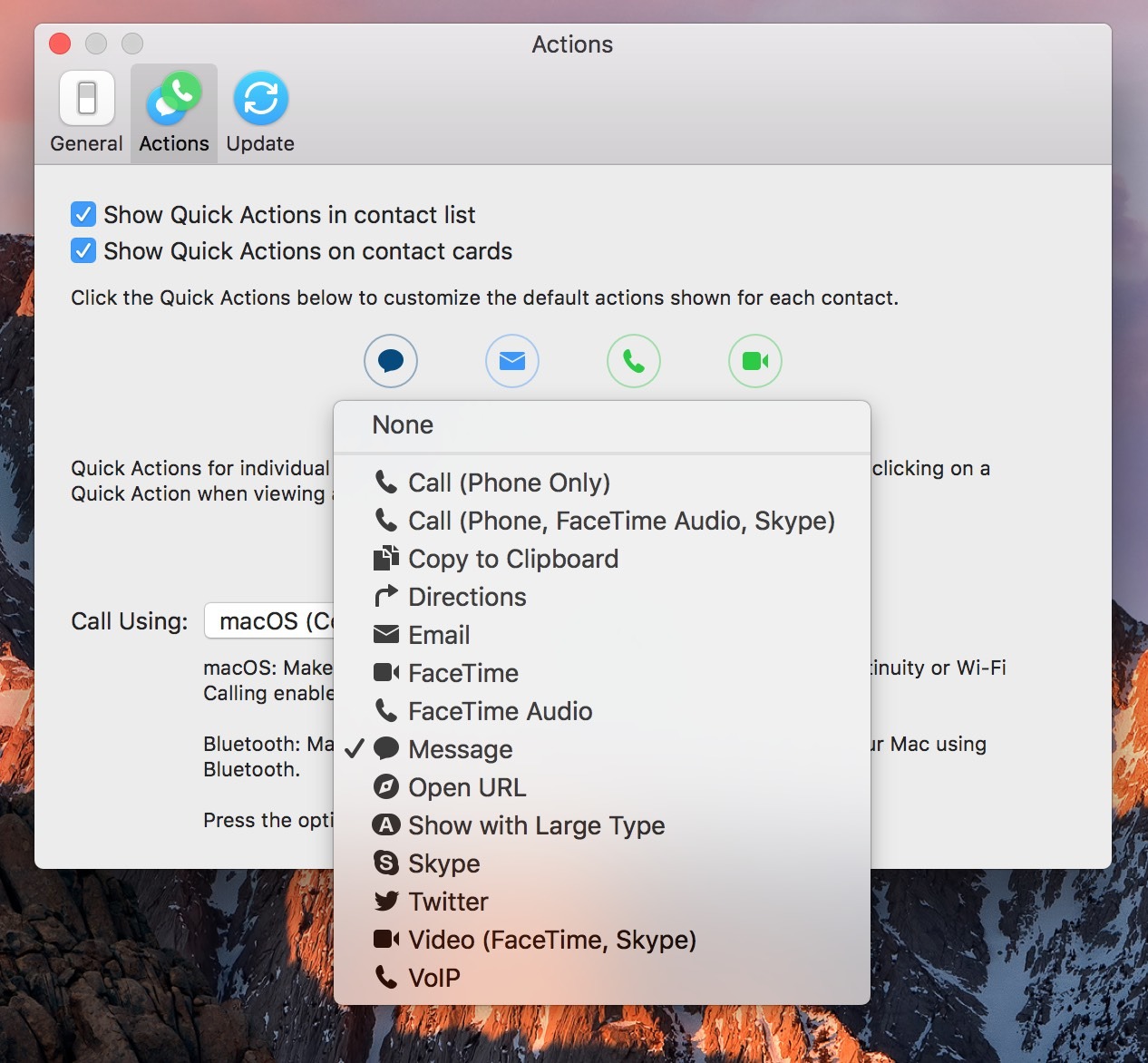

-m.jpg)






 William Gallagher
William Gallagher
 Andrew O'Hara
Andrew O'Hara
 Wesley Hilliard
Wesley Hilliard

 Malcolm Owen
Malcolm Owen
 Marko Zivkovic
Marko Zivkovic

 Chip Loder
Chip Loder




-m.jpg)




17 Comments
you had 32,000 contacts? how is this possible?
1) They've done a great job shoring up a lot of the shortcomings in Contacts, but I can't see myself using it at this point. I do like making calls from my Mac, and this seems nice, but I don't think I make enough calls to warrant the expense. I will, however, give the 21 day trial a go before making a final decision.
2) I dislike that the FaceTime app opens up when making a call. Continuity works fine, but it still feels like a bolted-on feature years later.
I've never been as high as 32k, but I used to have thousands since I dealt with countless customers and clients and I didn't like having business cards so I'd transfer all the data into Contacts. This also included (at least) hundreds of businesses.
I hope he explains how he was able to get into the 5 digits.
Some of Apple's limits seem logical, some not, IMO:
Limits for iCloud Contacts, Calendars, Reminders, and Bookmarks
To help iCloud keep your Contacts, Calendars, Reminders, and Bookmarks up to date, keep your information within these limits.
Calendars and Reminders
Contacts
Bookmarks
Information about products not manufactured by Apple, or independent websites not controlled or tested by Apple, is provided without recommendation or endorsement. Apple assumes no responsibility with regard to the selection, performance, or use of third-party websites or products. Apple makes no representations regarding third-party website accuracy or reliability. Risks are inherent in the use of the Internet. Contact the vendor for additional information. Other company and product names may be trademarks of their respective owners.
source:
Thanks,